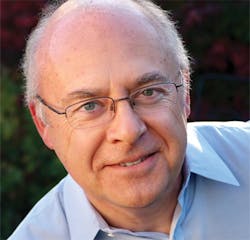
The James Webb space telescope—successor to the Hubble space telescope—may be in serious trouble. Last month the US House Committee on Appropriations approved a plan to slash NASA’s budget for next year, and it includes killing the Webb telescope. Though the House and Senate must vote on the measure before it becomes law, the ballooning cost of the Webb (now estimated at $6.8 billion total) has made it fair game for US lawmakers intent on deficit reduction. While there may be valid reasons for the high costs, they certainly make ground-based telescopes look like very attractive alternatives, especially given ongoing advances in optics technologies that likely will result in ground-based systems more than a match for Hubble. Among these advances are adaptive optics systems, such as the one with MEMS deformable mirrors being installed at the Lick Observatory on Mount Hamilton in California (see page 51). Elsewhere, budget constraints are also a factor limiting widespread deployment of infrared countermeasures on commercial aircraft. Recent advances in lasers and other components, though, are making them an increasingly viable option for protection of general aviation from heat-seeking missiles (see page 35).
Moving on...
This month brings to an end my 18 year tenure at Laser Focus World. I am leaving to pursue an opportunity with SPIE, the international society for optics and photonics. I would like to thank our readers and advertisers as well as my coworkers at PennWell for your support over the years. My colleague Conard Holton will be taking editorial control of Laser Focus World, effective August 1. Conard has been in the photonics field for 20 years, most of them associated with Laser Focus World. He was founding editor of WDM Solutions during the telecom boom, and is currently editor-in-chief of Vision Systems Design. Conard brings a wealth of knowledge and experience to this industry’s leading photonics resource and I wish him well.
Stephen G. Anderson | Director, Industry Development - SPIE
Stephen Anderson is a photonics industry expert with an international background and has been actively involved with lasers and photonics for more than 30 years. As Director, Industry Development at SPIE – The international society for optics and photonics – he is responsible for tracking the photonics industry markets and technology to help define long-term strategy, while also facilitating development of SPIE’s industry activities. Before joining SPIE, Anderson was Associate Publisher and Editor in Chief of Laser Focus World and chaired the Lasers & Photonics Marketplace Seminar. Anderson also co-founded the BioOptics World brand. Anderson holds a chemistry degree from the University of York and an Executive MBA from Golden Gate University.